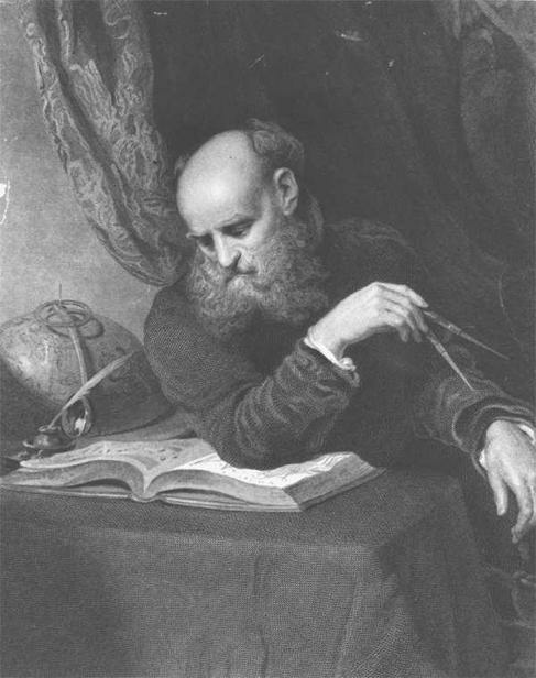Geoscience Reference
In-Depth Information
Figure 6.1: Galileo
Portrait of Galileo Galilei (1564-1652). [Hulton Archive, Getty Images.]
What is often forgotten is that Galileo, Darwin, Wegener, Lorenz, and their fellow scientific
revolutionaries were all respected, serious scientists or mathematicians of their day. Galileo, chair of
the University of Pisa's math department, invented the telescope and discovered sunspots (a
contribution that today allows researchers in climate science to infer past changes in solar activity
and their relationship with climate). Theoretical physicist Stephen Hawking has asserted that Galileo
“perhaps more than any other single person, was responsible for the birth of modern science.”
54
Wegener not only gave us continental drift, but was also a leading atmospheric scientist and is
credited, along with two other scientists, with having discovered the main mechanism responsible for
raindrop formation and rainfall (known as the Wegener-Bergeron-Findeisen mechanism). His original
lectures on the thermodynamics of the atmosphere are still regarded as seminal texts.
There could be no sharper contrast between modern-day climate change deniers and the true
paradigm breakers of scientific history. The very notion of such a comparison brings us back to the
chapter's epigram from Bertrand Russell. For it would be both misguided and dangerous to mistake


